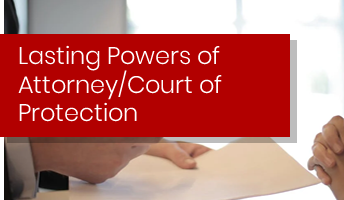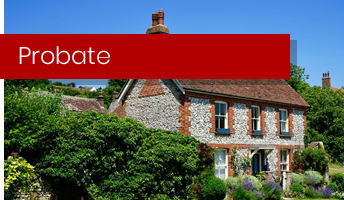News
The birth of a child changes so many things and is often a time when parents of young children begin to think about their own personal circumstances and wish to plan ahead financially, and also decide who should look after that child should something happen to both parents.
Making important decisions as to how you would like your child to be brought up and who you would want to be responsible for that child after you have died is a more difficult decision than deciding how your financial assets should be dealt with.
Under English law, a parent with “parental responsibility” can appoint legal guardians of their minor (a child under the age of 18 years) to protect against the situation if that parent should die during the child’s minority. Where parents are married at the date of their child’s birth, parental responsibility is automatic for both parents. If the child was born out of wedlock however, a father does not automatically obtain parental responsibility (although he can obtain it) unless the child was born after the 1 December 2003 and his name is registered on the birth certificate.
Assuming that both parents have parental responsibility, the appointment of a guardian will not usually take effect unless both parents die. This can cause difficulties if each parent appoints a different guardian. It is therefore advisable for a couple to agree upon the appointment of the same guardian. Complications can occur in cases of divorce or separation and where there is a residence order in favour of one parent. It may seem sensible to appoint two guardians, so that each parent is represented, but this may lead to practical problems if the two guardians disagree as to how the child should be cared for. Whoever is appointed, it is very important to discuss expectations and wishes with the potential guardian and to make sure that they are happy to accept the role. If not, there is the risk that the appointed guardian may decide to disclaim their appointment.
You can appoint a guardian for your child by Will or by signing and dating a written statement. Both methods are effective but most parents prefer for the appointment to be made by Will so that financial arrangements for the children and the guardian can be included and the Will can be stored safely. If a child has no living parent and no guardians have been appointed, then it is usually necessary for an application to be made to the court for a guardian to be appointed. The court must regard the child’s welfare as the paramount consideration.
In your Will or in a separate letter you can state how you would wish for your guardians to care for your child, including for example how you wish for them to be educated or housed. It is important to understand that the expression of these wishes is not legally binding. Ultimately the appointed guardian will be free to decide the manner of the child’s upbringing. This demonstrates how important it is to decide on the right guardian for your child.
Under English law it is not possible for children to inherit assets until they reach majority at the age of 18. This means that even if your Will attempts to leave assets outright to your children, there will be an automatic “trust” imposed so that the executors or trustees of your Will remain responsible for the assets until your child reaches the age of 18.
It is common to create specific trusts within Wills so that children do not inherit until after the age of 18, where large sums of money are involved, ages of 21 or 25 are often chosen on the basis that the children are more likely to display a greater degree of financial maturity the older they become.
One should consider whether the same individuals appointed as guardians should also be appointed as the executors and trustees of your Will. It can sometimes be advisable to appoint different people to have responsibility for dealing with the financial and administrative aspects of your estate to the people who have the practical responsibility for caring for your child. Appointing different people can also reduce the risk of disagreement or misuse of funds by an appointed guardian.
If you do not make a Will or fail to keep it updated regularly then your assets may not pass to your children in the way you had hoped. If you die without a Will known as dying intestate, the devolution of your estate will be governed by statutory rules which can often give rise to a different result than one you might expect.
Add a comment:
Burningham & Brown is authorised and regulated by the Solicitors Regulation Authority - SRA Number: 8000096






